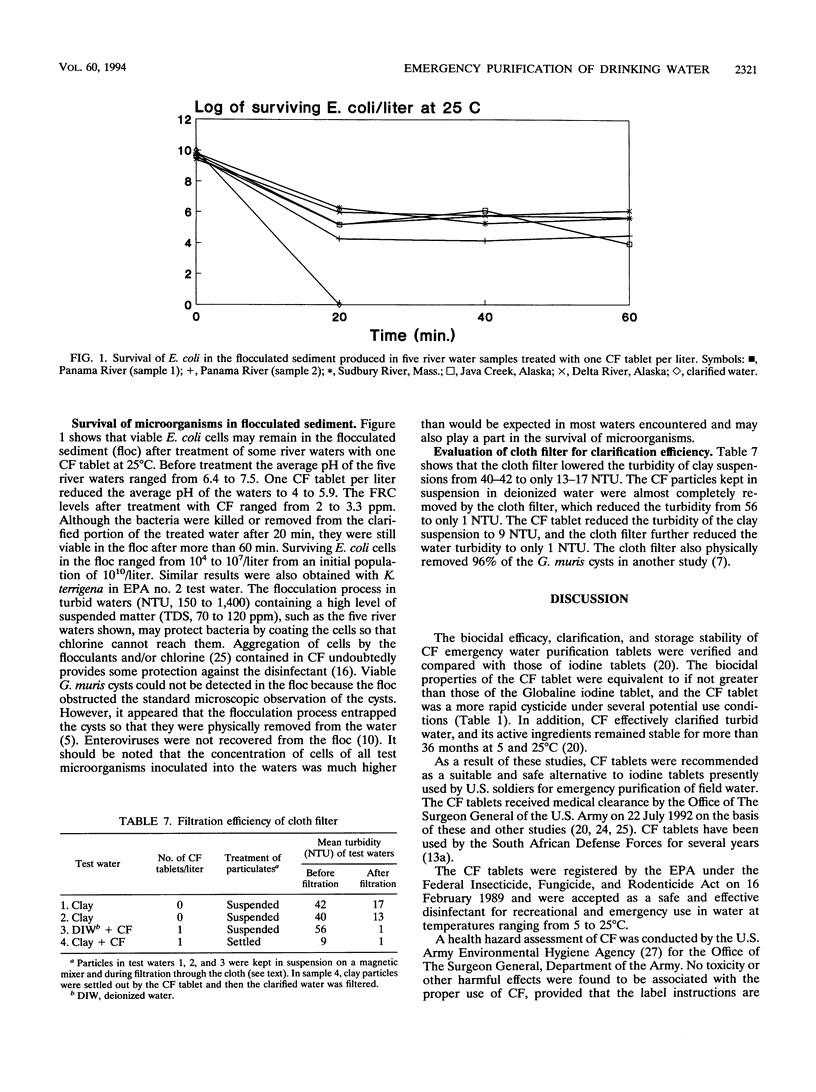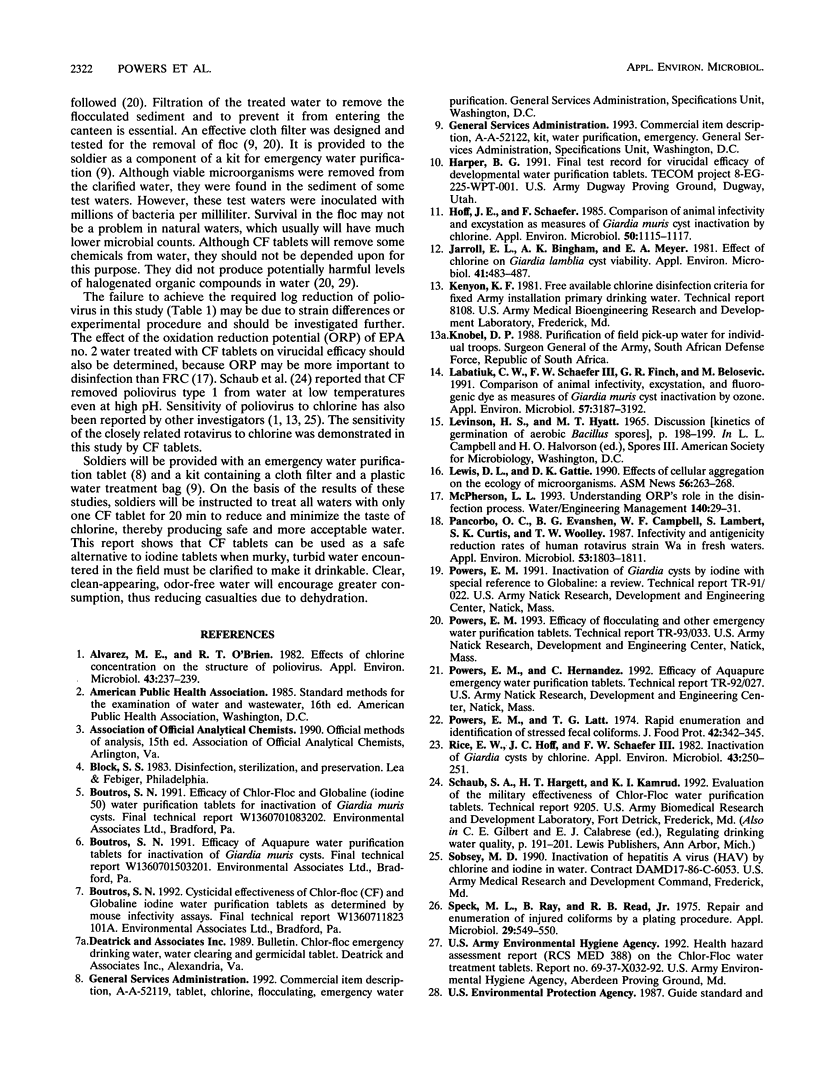Abstract
Chlor-Floc (CF) emergency water purification tablets were tested for bactericidal, virucidal, and cysticidal efficacy in water at temperatures ranging from 5 to 25°C. The minimal required log reduction was achieved for bacteria, Giardia muris, and rotavirus, but CF did not achieve the required log reduction of poliovirus at any of the temperatures or times investigated. The biocidal properties of the CF tablet were equivalent to if not greater than those of the Globaline iodine tablet, and the CF tablet was a more rapid cysticide under several potential use conditions. Therefore, it is a suitable substitute for iodine tablets for emergency purification of drinking water. Clarification of turbid waters was effective, but filtration through a cloth is necessary to prevent flocculated sediment from entering the canteen. The CF tablets met military requirements for emergency water purification and are safe and acceptable for use by the military.
Full text
PDF







Selected References
These references are in PubMed. This may not be the complete list of references from this article.
- Alvarez M. E., O'Brien R. T. Effects of chlorine concentration on the structure of poliovirus. Appl Environ Microbiol. 1982 Jan;43(1):237–239. doi: 10.1128/aem.43.1.237-239.1982. [DOI] [PMC free article] [PubMed] [Google Scholar]
- Hoff J. C., Rice E. W., Schaefer F. W., 3rd Comparison of animal infectivity and excystation as measures of Giardia muris cyst inactivation by chlorine. Appl Environ Microbiol. 1985 Oct;50(4):1115–1117. doi: 10.1128/aem.50.4.1115-1117.1985. [DOI] [PMC free article] [PubMed] [Google Scholar]
- Jarroll E. L., Bingham A. K., Meyer E. A. Effect of chlorine on Giardia lamblia cyst viability. Appl Environ Microbiol. 1981 Feb;41(2):483–487. doi: 10.1128/aem.41.2.483-487.1981. [DOI] [PMC free article] [PubMed] [Google Scholar]
- Labatiuk C. W., Schaefer F. W., 3rd, Finch G. R., Belosevic M. Comparison of animal infectivity, excystation, and fluorogenic dye as measures of Giardia muris cyst inactivation by ozone. Appl Environ Microbiol. 1991 Nov;57(11):3187–3192. doi: 10.1128/aem.57.11.3187-3192.1991. [DOI] [PMC free article] [PubMed] [Google Scholar]
- Pancorbo O. C., Evanshen B. G., Campbell W. F., Lambert S., Curtis S. K., Woolley T. W. Infectivity and antigenicity reduction rates of human rotavirus strain Wa in fresh waters. Appl Environ Microbiol. 1987 Aug;53(8):1803–1811. doi: 10.1128/aem.53.8.1803-1811.1987. [DOI] [PMC free article] [PubMed] [Google Scholar]
- Rice E. W., Hoff J. C., Schaefer F. W., 3rd Inactivation of Giardia cysts by chlorine. Appl Environ Microbiol. 1982 Jan;43(1):250–251. doi: 10.1128/aem.43.1.250-251.1982. [DOI] [PMC free article] [PubMed] [Google Scholar]
- Speck M. L., Ray B., Read R. B., Jr Repair and enumeration of injured coliforms by a plating procedure. Appl Microbiol. 1975 Apr;29(4):549–550. doi: 10.1128/am.29.4.549-550.1975. [DOI] [PMC free article] [PubMed] [Google Scholar]


